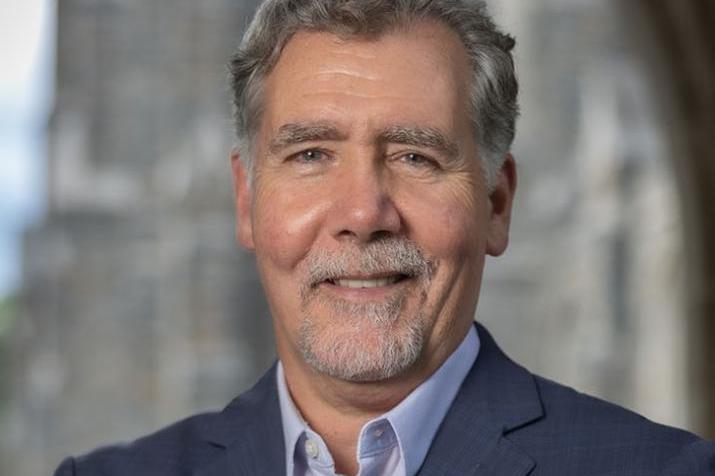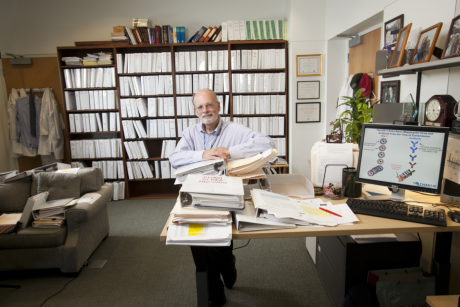Chris Beyrer, M.D., director of the Duke Global Health Institute and an internationally recognized researcher on HIV prevention and treatment, has been named an Outstanding Ally in Advancing Scientific Advocacy for his work to improve the health and human rights of gay men in Africa.
The award, given by Global Black Gay Men Connect Africa (GBGMC), recognizes Beyrer’s HIV research in Africa, as well as his efforts to promote equality and human rights for LGBTQ communities in African countries. The award will be presented at the GBGMC Africa men’s health conference on Dec. 8 in Harare, Zimbabwe.
“Your exceptional dedication to advancing scientific advocacy for GBMSM (Gay, Bisexual, and other Men who have Sex with Men) communities in Africa has not gone unnoticed,” Micheal Ighodaro, a representative of GBGMC, wrote in an email to Beyrer announcing the award. “Your tireless efforts in promoting research, evidence-based policies, and support for the health and well-being of GBMSM individuals have significantly impacted the lives of many.”
Beyrer has led collaborative research on HIV epidemiology, prevention and treatment in Southeast Asia, Sub-Saharan Africa, Eastern Europe and Central Asia for more than 30 years. He is past president of the International AIDS Society, the world’s largest body of HIV professionals, and currently serves as an advisor to the U.S. President’s Emergency Plan for AIDS Relief (PEPFAR), the HIV Vaccine Trials Network, the World Health Organization, and Physicians for Human Rights.
Beyrer says he is overjoyed by the progress in HIV prevention over the past few decades. He recalls working to gather data on HIV in African countries 15 years ago, a time when many government officials denied that any gay people lived in their countries. But the bravery and advocacy of gay rights community groups helped push the agenda, gaining greater recognition for both HIV prevention and other issues facing gay Africans.
“The award is important for the scientific and epidemiologic work that we had to do to be recognized. It gives us the legitimacy to continue the work that we have been doing. There was a real dearth of evidence of what was happening to these men in their communities, but we are now past that,” Beyrer says.
Despite the improvement in gay rights in many African countries, serious challenges are continuing to merge, Beyrer says. He notes the draconian laws criminalizing homosexual activity that were recently passed in Uganda.
Beyrer pledges to continue to support networks that are working on advancing healthcare access for the communities. More collaborative work needs to be done, he notes, as success can only be achieved by involving community groups in the advocacy.



